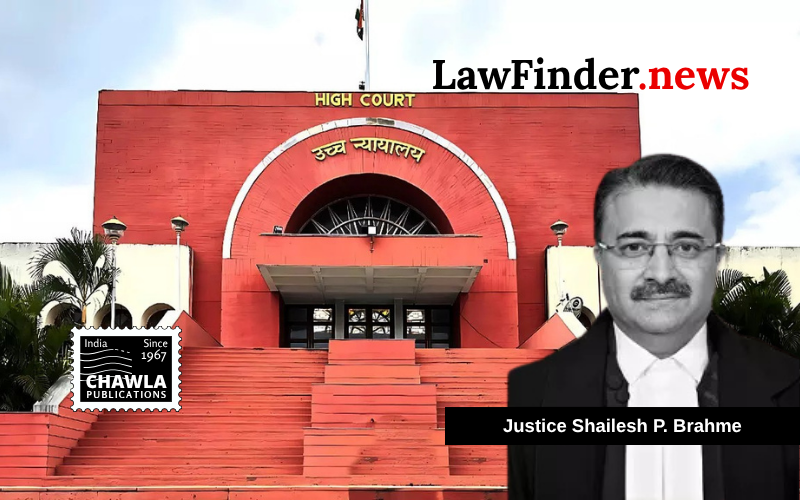Bombay High Court Upholds Trial Court Verdict: Land Sy. No. 47 Confirmed as Self-Acquired Property. The Aurangabad Bench reverses appellate court decision, validating alienations by widow Subhadrabai.
In a significant judgment passed by the Bombay High Court, Aurangabad Bench, on October 4, 2025, Justice Shailesh P. Brahme upheld the trial court's decision that land Survey No. 47 is the self-acquired property of Gyanu, overturning the appellate court's ruling that deemed it a joint family property. The case, which has traversed through multiple levels of judicial scrutiny, centered around the classification of property purchased in the name of Gyanu and whether it belonged to the joint family or was independently acquired.
The dispute arose when the respondents claimed that land Sy. No. 47 was part of the undivided joint family property, purchased through the family nucleus. Conversely, the appellants, led by Subhadrabai, Gyanu's widow, contended that the property was self-acquired, purchased with contributions from Gyanu's mother-in-law and Jayaji, a family member.
The trial court initially ruled in favor of Subhadrabai, affirming her right to alienate the property after Gyanu's death. However, the appellate court reversed this decision, classifying the land as joint family property, thus challenging the alienations made by Subhadrabai.
Justice Brahme meticulously examined the evidence, including sale deeds, revenue records, and oral testimonies, emphasizing the preponderance of probabilities. He noted the lack of evidence supporting the joint family nucleus theory and highlighted the exclusive purchase in Gyanu's name, supported by unchallenged mutation entries and sale deeds, as indicative of the land being self-acquired.
The judgment reiterated the legal principle that alienations made by Subhadrabai were valid, as the land belonged solely to Gyanu. Furthermore, it addressed the rights of Geetabai, Gyanu's second widow, clarifying that upon her remarriage, she ceased to have any claim on Gyanu's property, aligning with Section 2 of the Hindu Widows Remarriage Act, 1856.
Justice Brahme's decision underscores the importance of concrete evidence in property disputes, particularly regarding joint family versus self-acquired classifications. It sets a precedent for similar cases, illustrating the judiciary's role in safeguarding individual property rights amidst familial claims.
This verdict brings closure to a long-standing family dispute, re-establishing the trial court's findings and affirming the legal alienations executed by Subhadrabai. The case is a testament to the intricate interplay between personal law and property rights, with the court meticulously balancing legal principles with factual realities.
Bottom Line:
Property purchased in the name of an individual member of the joint family - Determination of whether it is joint family property or self-acquired property based on evidence of nucleus and contribution.
Statutory provision(s): Hindu Law, Hindu Widows Remarriage Act, 1856 Section 2, Hindu Succession Act, 1956
Tukaram v. Kundlik, (Bombay)(Aurangabad Bench) : Law Finder Doc Id # 2788901




